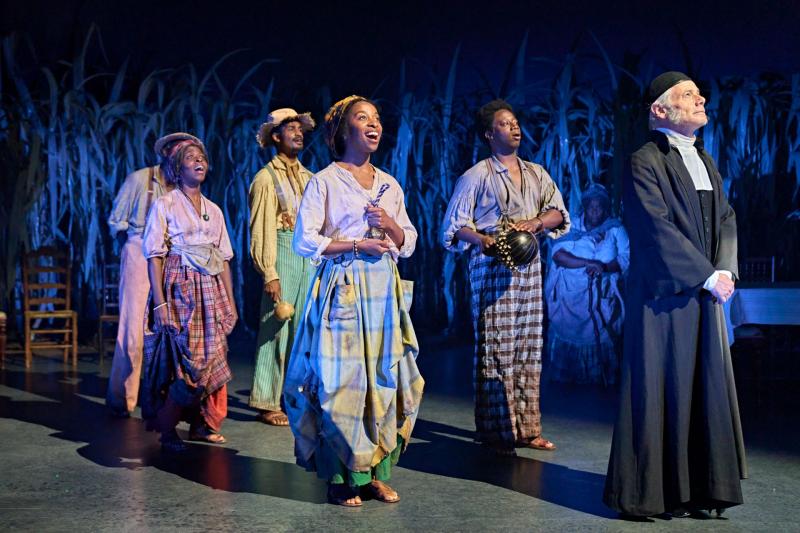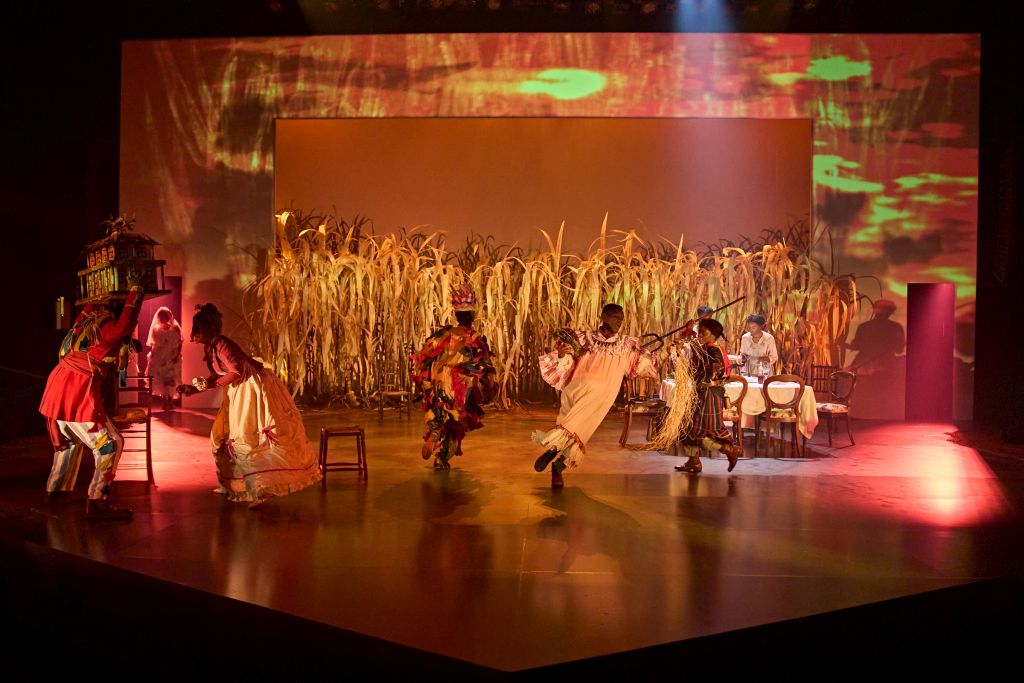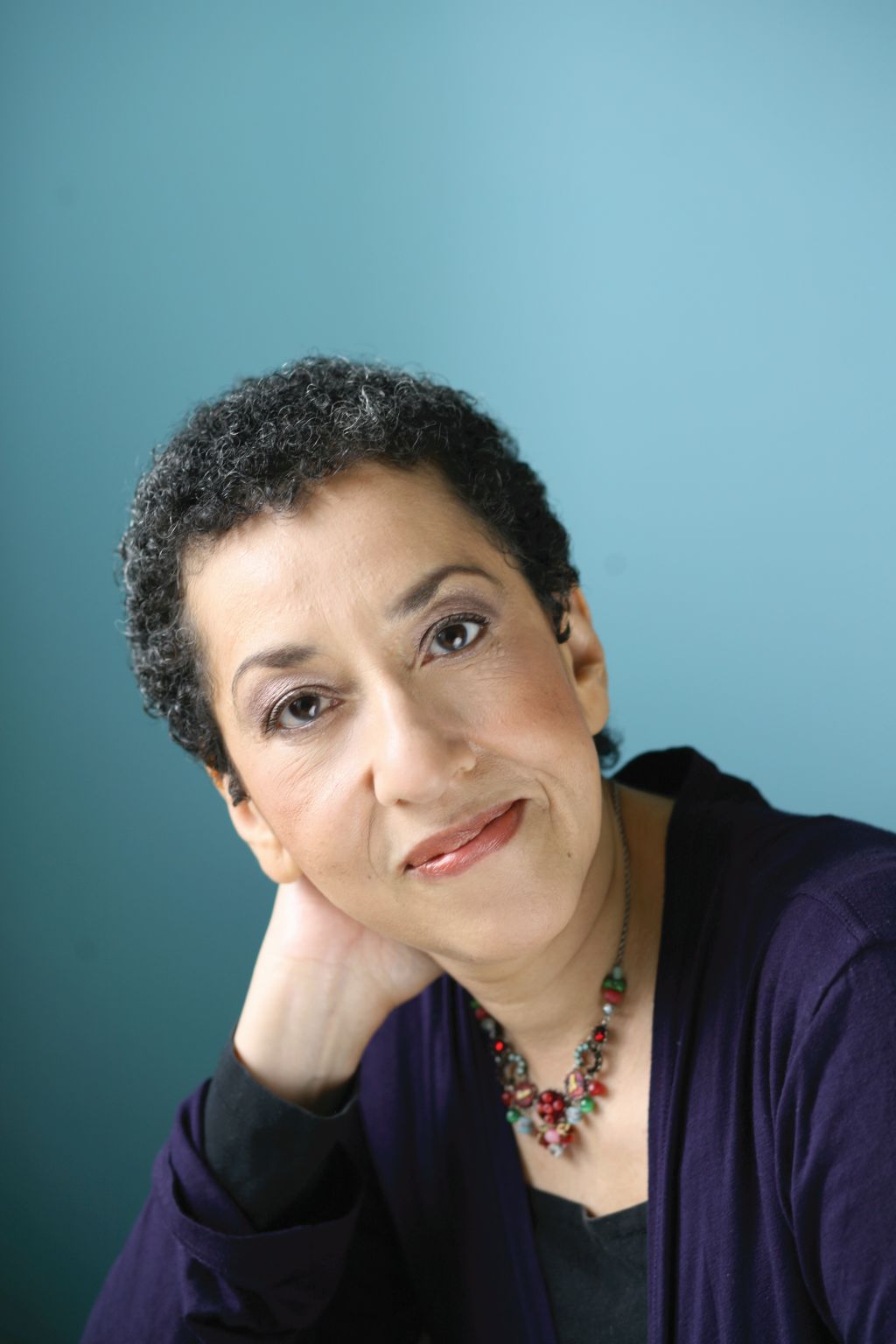First Person: Andrea Levy's husband recalls her path toward becoming a novelist | reviews, news & interviews
First Person: Andrea Levy's husband recalls her path toward becoming a novelist
First Person: Andrea Levy's husband recalls her path toward becoming a novelist
A look back at the road to renown paved by the author of 'The Long Song'

The opening sentence of Andrea’s 2010 historical novel The Long Song is in the voice of Thomas Kinsman, who is introducing the reader to his mother, July.
"The book you are now holding in your hand was born of a craving," Kinsman declares. "My mama had a story – a story that lay so fat within her breast that she felt impelled, by some force that was mightier than her own will, to relay this tale to me."
I have always felt that if you substitute "Andrea Levy" for "my mama" that we have a pretty accurate description here of Andrea’s own literary career. The Long Song was the last of the five novels she wrote, but it was the culmination of a story – a big fat story – that was the impelling force for each and every one of them. It is the story of Britain and the Caribbean, the relationship between these two places, and the human legacy that it has left us with today. [A stage version, adapted by Suhayla El‑Bushra, opens 7 October at Chichester Festival Theatre, through 23 Oct.]
Andrea’s parents were part of what we now call the Windrush generation. In fact, her father Winston Levy actually came over to Britain as a passenger on the Empire Windrush in 1948. They were light-skinned Jamaicans - what in the Caribbean would be called the "coloured" middle-class. Once in England, their reaction to the hostile environment they found here was to keep their heads down, downplay their Caribbean roots and try to get themselves and their children to "fit in" as much as possible. So, Andrea grew up knowing herself not to be white – and therefore vulnerable to racism – but also not to be "typically" black. No tales of back home, no celebration of Caribbean culture, food or music. Her schools were overwhelmingly white, her friends were white. "Am I a proper black person?" she asked herself. It took her a long time to realise that there is no such thing. All black Britons are part of the black British experience, and her story was as valid and insightful as anyone else’s.
 I met Andrea when she was in her mid 20s, a good while before she ever dreamed of becoming a writer. But the groundwork for that transition (it was never really a dream) was already being laid. She was reading voraciously, fiction and non-fiction, and particularly African-American writers. But there was a big gap – a silence, it seemed to her – in the books that she could find. In the early 1980s books that reflected her own experience of growing up black and British were very thin on the ground. This mattered to Andrea because she was struggling to understand her place in Britain: the country she was born in and whose culture she knew and understood, and yet a country that had always made her feel as though she didn’t quite belong.
I met Andrea when she was in her mid 20s, a good while before she ever dreamed of becoming a writer. But the groundwork for that transition (it was never really a dream) was already being laid. She was reading voraciously, fiction and non-fiction, and particularly African-American writers. But there was a big gap – a silence, it seemed to her – in the books that she could find. In the early 1980s books that reflected her own experience of growing up black and British were very thin on the ground. This mattered to Andrea because she was struggling to understand her place in Britain: the country she was born in and whose culture she knew and understood, and yet a country that had always made her feel as though she didn’t quite belong.
The crucial step to herself becoming a writer rather than just a reader was a part-time course she embarked upon in much the same way that many of us do. It could easily have been yoga or printmaking but, out of curiosity (and the fact that all she needed was a pen and a notebook), she enrolled on a once-a-week class in creative writing. She soon found to her surprise that not only could she write in an honest and direct way that engaged her fellow students – to be enthralled, to laugh and even to cry – but also that she had a story to tell that was missing from the bookshelves: her own.
"Every light in the house burnin’!", was a frequent exclamation of her cost-conscious dad on coming home from work on winter evenings. It became the title of her first novel, a fictionalised memoir of growing up in Highbury in the 1960s.
 When she completed the novel, the search for an agent and then a publisher was long and dispiriting. A simple algorithm seemed to be in play – this is a niche market: only black people will be interested in this type of book (or film or play). It’s a mindset that Andrea’s subsequent career has disproved in a spectacular way, but one that still lingers among many of our cultural gatekeepers. Eventually, Headline published the novel and have been her loyal publisher ever since.
When she completed the novel, the search for an agent and then a publisher was long and dispiriting. A simple algorithm seemed to be in play – this is a niche market: only black people will be interested in this type of book (or film or play). It’s a mindset that Andrea’s subsequent career has disproved in a spectacular way, but one that still lingers among many of our cultural gatekeepers. Eventually, Headline published the novel and have been her loyal publisher ever since.
There followed two more novels, Never Far from Nowhere and Fruit of the Lemon, which Andrea often described as a "baton race", each one loosely autobiographical but passing the story on into the 1970s and then the 1980s, exploring the contemporary black British experience and beginning to be increasingly interested in the historical roots of Britain’s links with the Caribbean and the wider politics of empire. As a writer she was gaining confidence and getting more ambitious.
With Small Island she went back in time to her parents' story, and indeed to my parents' as well, story for it was her rounded, nuanced Englishness (or perhaps I should say London-ness, for she so loved the city of her birth), white as well as black, that made her want to write a story not only of the people who came across to this country but of the people, for better or worse, who received them. It was her breakthrough novel, and it gave her a power and a readership that she relished.
With Andrea (pictured above) there was never a "What shall I write about next?" question. She just followed her nose deeper into that same story "fat within her breast". It took her six years to research and write The Long Song, and this novel took its toll. Halfway through she was diagnosed with cancer and questioned whether she would be able to complete the book. She did and lived to see it published and to make an impact. It was shortlisted for the Booker Prize and should have won! But as her husband and soulmate, I would say that.
When the book came out, journalists interviewing Andrea would admit that they never realised that the British were involved in slavery in the Caribbean. Much has changed in the last decade and such an admission would be more difficult to imagine now, or so one would hope. But we also know how much still needs to be done to fill in the silences of Britain’s "Island story". Andrea’s body of work has been, and still is, a massive contribution to this task.
Several years after its publication, Andrea and her family made a breakthrough in discovering the history of her own ancestry in Jamaica around the exact time that her novel covers. The reality bears some uncanny similarities with the story she had imagined. But in a sense, this is merely a validation of her research. The story of The Long Song was not unique, it was a familiar pattern true to that time and that place. Andrea had simply unearthed it and breathed life back into it.
Share this article
The future of Arts Journalism
You can stop theartsdesk.com closing!
We urgently need financing to survive. Our fundraising drive has thus far raised £49,000 but we need to reach £100,000 or we will be forced to close. Please contribute here: https://gofund.me/c3f6033d
And if you can forward this information to anyone who might assist, we’d be grateful.

Subscribe to theartsdesk.com
Thank you for continuing to read our work on theartsdesk.com. For unlimited access to every article in its entirety, including our archive of more than 15,000 pieces, we're asking for £5 per month or £40 per year. We feel it's a very good deal, and hope you do too.
To take a subscription now simply click here.
And if you're looking for that extra gift for a friend or family member, why not treat them to a theartsdesk.com gift subscription?

Add comment